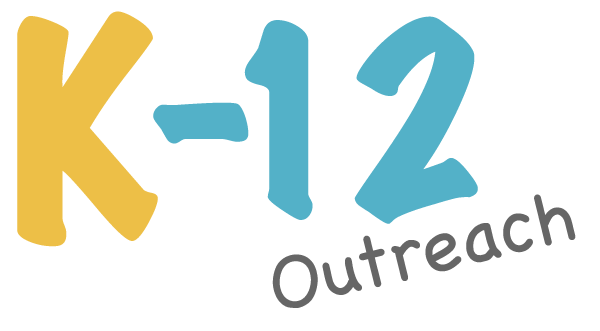
In a scary world, today’s parents tend to be more reluctant than their parents were to turn their children loose — whether on the neighborhood streets or in the classroom. So they arrange play dates, plan activities and keep close tabs on schoolwork. But some go too far. Invariably they have the best intentions, but “helicopter” parents — the term applied to moms and dads who hover around their kids at a level inappropriate to the child’s development — do a disservice, says a UCLA parenting expert.
“It’s important to allow children to explore — both literally and figuratively,” says Cynthia Whitham M.S.W. ’83, associate director of the UCLA Parenting and Children’s Friendship Program, which offers group parent-training and social-skills programs for families.
“When our children are starting to walk, we want to be there to catch them when they fall — but if we’re wise, we hold our breath and allow them to fall, pick themselves up and learn to succeed. That is a metaphor for what we need to do as our children get older.”
Middle school is a time when adolescents need to begin pulling away and become independent. But it’s also a time when many parents see the potential hazards — of failing to get good grades, of falling in with the wrong crowd — and find themselves anxious and wanting to exert more control.
Although it’s natural to want to do everything to ensure success socially and academically, too much hovering can produce a child who grows up unskilled and uncertain when it comes to decision making and problem-solving. And while some children accept their parents’ over-involvement, even if it means feeling stifled and lacking in confidence, others rebel by the time they reach their teens, closing off communication lines and not seeking their parents’ counsel when they need it.
Leave Them Alone
Applying appropriate supervision and limits while teaching responsibility and fostering independence is often a delicate balancing act, Whitham acknowledges. Her advice:
Many parents feel guilty if they aren’t constantly engaging their young child in play, but it’s important to teach children to be comfortable playing on their own.
“Kids need to learn to tolerate being alone,” Whitham says. Parents shouldn’t worry that the child will become bored, she adds — children are naturally inclined to find something to amuse themselves. When they do, parents should encourage them through praise.
Get to Know Their Friends — Subtly
It’s natural for parents to want to steer their children toward friends who will be positive influences — and when the children are young, there are subtle ways of doing so. They include observing your child’s playmates, getting to know their parents, and helping to cultivate friendships with the ones who have the most to offer.
It’s Their Homework, Not Yours
By middle school, of course, parents begin to have less say about friendship choices. Making your house a fun place for kids is one way to draw your child’s friends there so that you can keep tabs on who is in the social circle without hovering. Offering to drive places is also a good way to get to know the friends — and by merely listening to the conversation rather than intervening, you are more likely to hear an unfettered version of their interactions.
With Freedom Comes Responsibility
The start of middle school, before grades begin to count for college, is the ideal time to turn over responsibility for homework. “You have to be able to pull back and allow the child to fail so that he or she can learn the consequences and be more motivated to do it right the next time,” Whitham says. “If you’re constantly nagging, you’re not allowing that autonomy to develop.” If the child needs help, Whitham recommends that parents hire a college-age tutor. This gives the child needed academic support while still preserving autonomy.
Your Response Counts
Early adolescence is also when children begin to spend more time in less controlled environments. It’s perfectly appropriate to establish rules that the child must check in whenever changing venues and respond to the parent’s calls within a reasonable amount of time — assuming the parent isn’t being unreasonably intrusive in the frequency and tone of the calls. As the child begins asking to go places that make you nervous — to a concert, for example — parents should see what they can do. “If there’s a way you can say yes while assuring your child will be safe, try to help that happen,” says Whitham. By proving able to stay within stated limits and handle responsibility, the child earns more opportunities.
If you’re the anxious or worrying type, try to keep it under control around your kid. Younger children will pick up on a parent’s distress. If the child is crying over being dropped off at school, a parent who shows it gets to him or her only makes matters worse. The dynamic is different for older children, but the principle of projecting calm applies.
Create an Opening — and Don’t Pounce
“If you can hear your child say things without freaking out — even if what the child is telling you is distressing — you’re going to get more information,” Whitham says. “If you become hysterical when the child tells you there were drugs or alcohol at a party, that child is going to be less likely to share that kind of information in the future.”
Allow Failure
Particularly as your child gets older, open communication is key — and yet, Whitham observes, “often the more you try to get a child to talk, the more the child doesn’t.” She recommends creating a vacuum. “If you get in the car and you’re chatting away, it doesn’t give the child any opportunity,” Whitham says. When the older child does open up, don’t go overboard in your probing: “Your child needs to feel safe, not only when sharing negative information, but also when sharing the positive. If she tells you she’s romantically interested in someone and you start peppering her with questions, she may shut down.”
Difficult though it may be to watch your child suffer through a mistake, if you’re constantly bailing him out, you’re depriving him of critical learning experiences.
“Children have to learn how to overcome mistakes, and experiencing disappointment is part of that lesson,” Whitham concludes. “If we’re overprotective as parents, our children aren’t well prepared for the obstacles they will inevitably encounter as they enter adulthood.”

